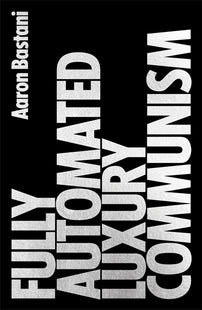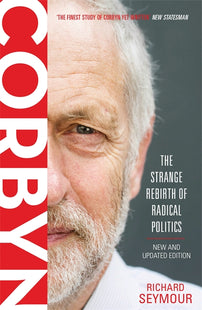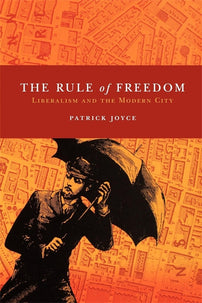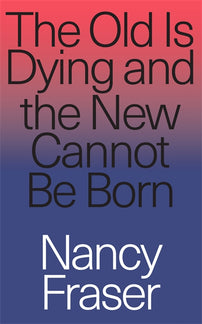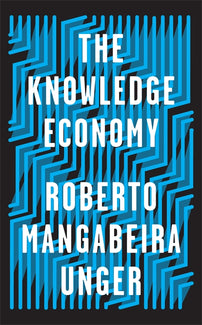Fighting Corbyn with Deliveroo
The Tories have a millennial problem. That's the conclusion of a series of interventions in the past few months from a range of Conservatives, not least Liz Truss free-market conservatism to “Uber-riding, Airbnb-ing, Deliveroo-eating freedom fighters". But what's behind this appeal to the lifestyle freedom of the "Boohoo generation"? In this article, Orlando Lazar argues that debating the left on the terrain of freedom is dangerous territory for the Tories, and one which elides the dynamics of modern capitalism.

From behind a paywall in The Telegraph, Fraser Nelson argued at the end of last month that the Tories need to get better at talking to young people. Introducing his article on Twitter, Nelson writes that “it’s not that the young are wedded to socialism – it’s that they’ve never heard the case for conservatism”. What does this case look like? Young people need to be reminded of the benefits of a modern, dynamic free market, he argues: “cheap flights, multiple television channels, Deliveroo, taxis (and pizzas) that can be summoned by mobile phone”.
Step forward Liz Truss. Far from shying away from this task, the Chief Secretary to the Treasury has been trying to sell free-market conservatism to what she calls “Uber-riding, Airbnb-ing, Deliveroo-eating freedom fighters” for some time now. A good example of her approach can be found in a speech given at Leeds University last month, entitled “Fighting Corbyn With Freedom”:
The next thing we need to do as a government is to convey the idea of lifestyle freedom. This generation that has benefitted from the gig economy, whether it’s Airbnb, Uber, or any of those new opportunities, is the freest. You have Spotify – you don’t have to go to Virgin records to buy an LP. You’ve got the opportunity to listen to things whenever you want and however you want. You’ve got the opportunity to do things in a very different way. And I do think that there are threats from people who want to change the nature of the internet – Jeremy Corbyn, for example, has come up with some very worrying policies in this area.
This sort of argument has an odd, ritual quality. Truss chants the names of brands at young people like magic words, just waiting to stumble across the one that turns them into Conservative voters. Since the speech, she’s tried calling them “the Boohoo generation”; the marketing divisions of Giffgaff and HelloFresh must be grimly awaiting their generation-defining Liz Truss endorsement.
[book-strip index="1" style="buy"]Although free-market conservatives have tried to monopolise the value of freedom for over a century, Truss’s concept of ‘lifestyle freedom’ is a novelty for British conservatives. It’s not quite the crude, consumer freedom of US antisocialism – try choosing between a thousand types of breakfast cereal from within the Gulag – nor is it the more familiar freedom for entrepreneurs to swashbuckle their way through the marketplace, free from regulation or workers’ rights. In that same speech, Truss talks about lifestyle freedom as young people’s “ability to shape and control their own lives”, to order a taxi or a burger or a dress whenever they want, a freedom allegedly threatened by the old-fashioned, top-down socialism of Corbyn and McDonnell.
One problem with this sort of approach is that while Truss’s freedom fighters exist, they’re fighting against Deliveroo. Maybe the ability to order food on an app, or order a cheap dress, makes me freer. But to point towards the innovative, trailblazing business models of these companies is to point to practices of bogus self-employment, zero-hours contracts, to warehouses full of workers whose toilet breaks are carefully monitored and whose steps are logged and counted. Many of these people are in the age range that Truss is nominally speaking to, but perhaps lifestyle freedom isn’t for these young people, who are too poor, disproportionately non-white, disproportionately immigrants. Truss’s lifestyle freedom is freedom for the young people with a spare house to rent out on Airbnb. It is for those young people who populate the cast of intergenerational analyses free from class – generally living in large cities, generally well-off, those in a position to take advantage of the cutting edge of the gig economy. It’s not for those young people who are too poor or too geographically remote to do so, and it’s certainly not the freedom for striking Deliveroo drivers to fight back against the latest attack on their rights.
[book-strip index="2" style="buy"]More generally, this talk of freedom is dangerous territory for a Conservative like Truss. Steer away from an account of freedom as the bare absence of state interference, and start singing the praises of the freedom to control one’s life, and people might start wondering about the barriers to that control. Why does lifestyle freedom seem to end when they enter their workplaces? Why does Truss want us to have the lifestyle freedom to pay to get an Uber around a city – if it pays Uber to operate there – but not the freedom to choose how public transport might be better run? Connect freedom to control, and you connect the expansion of that freedom to the expansion of control. On a large scale, that means the radical extension of democracy into new areas of society.
This is new ground for the right, but old ground indeed for the left. Freedom as the ability to control one’s life (or, at least, the absence of that control by others) has been a bright thread running through a great deal of radical philosophy. The last few years have seen a resurgence of this kind public discussion of freedom and control in the modern workplace, on both sides of the Atlantic: see Tom O’Shea in New Socialist, or Barry Eidlin and Micah Uetricht in Jacobin. Perhaps more importantly, it also underpins a good deal of the more exciting strands of Corbynism in the UK. Far from advocating top-down centralisation, John McDonnell’s shadow chancellorship has been a record of quiet experimentation with democratic public ownership. Workplace democracy, worker ownership, participatory budgeting – all are gently rising into view on the horizon. A string of thinkers and thinktanks have arisen to tease out these possibilities; Common Wealth, the latest, launched just this week.
Liz Truss might not be the best advocate of this kind of ‘lifestyle freedom’ – her social media advice for fellow Tories is apparently “post first, think later” – but Conservatives more generally ought to be wary of connecting freedom with the ability and means to control one’s life. It’s a good argument, but it’s a good argument for the more radical edges of the Corbyn project.
Orlando Lazar is political philosopher in the Department of Politics & International Relations at Oxford, finishing a DPhil on freedom, domination, and the workplace.
[book-strip index="3" style="display"]
